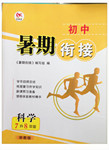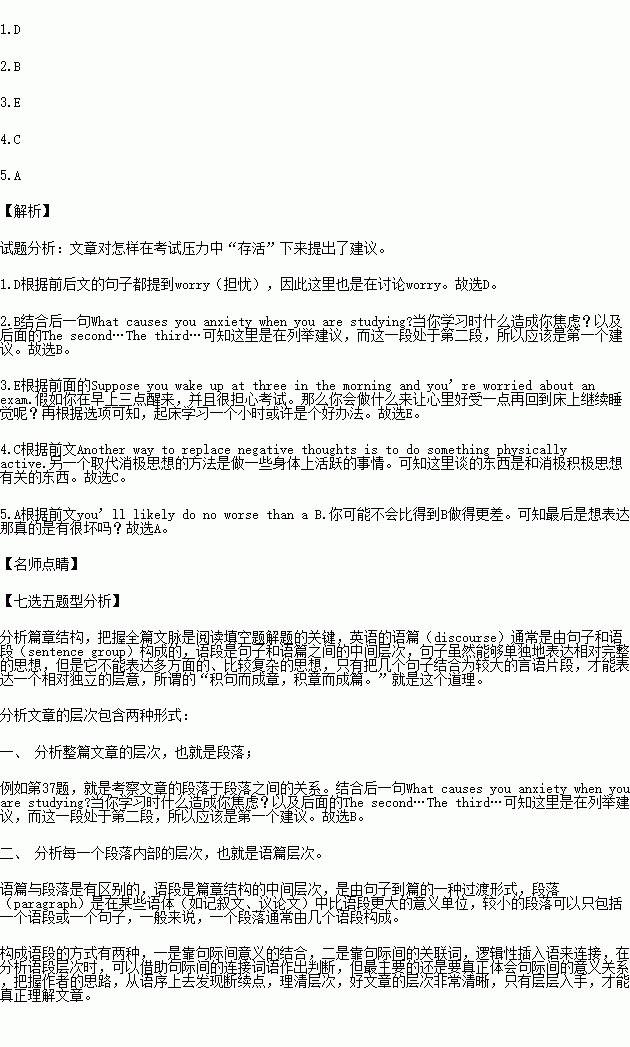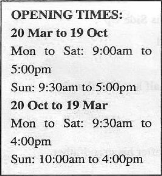题目内容
根据短文内容,从短文后的选项中选出能填入空白处的最佳选项。选项中有两项为多余选项。
How to Survive Exam Stress
Exam time is one of the most stressful in school, whether it is high school, college or graduate school. Even the best students feel the pressure. The first sign of a problem while preparing for an exam is worry. 1. If we can get rid of worries, or at least control them, then we’re in a much better position to do well on our tests. Take the following steps to survive exam stress and increase your overall performance as a result.
2. What causes you anxiety when you are studying? Too much noise? Then move to a quieter place. Delayed work? Catch up with your studies a couple nights before. That way you can save the final night before the exam to review and get a good night of sleep.
The second way to deal with worry is to replace thoughts. Suppose you wake up at three in the morning and you’re worried about an exam. What do you do? 3. Doing something productive might allow you to sleep better when you finally do go back to bed.
Another way to replace negative thoughts is to do something physically active. Work out. Take a quick walk or a nice run. 4. For example, I might worry about the exam having surprise questions that I’m not prepared to answer. But I can put those thoughts aside by reminding myself that I’ve taken many exams and I’ve handled surprise questions before.
The third option is to treat the symptoms. Keep things in perspective. Think of one final exam that causes you the most anxiety. Now think of the worst thing that could happen. If you’ve prepared, then likely the worst grade you could get is a C. And, if you’ve been applying what we’ve been talking about, then you’ll likely do no worse than a B. 5.
A. How bad is that really?
B. The first is to delete the causes.
C. Another idea is to think positive thoughts.
D. Worry robs us of energy, focus and motivation.
E. How about getting up and studying for an hour?
F. What we should do is to think positively and get rid of it.
G. So we are supposed to make our effort to improve our surroundings.
 初中暑期衔接系列答案
初中暑期衔接系列答案


